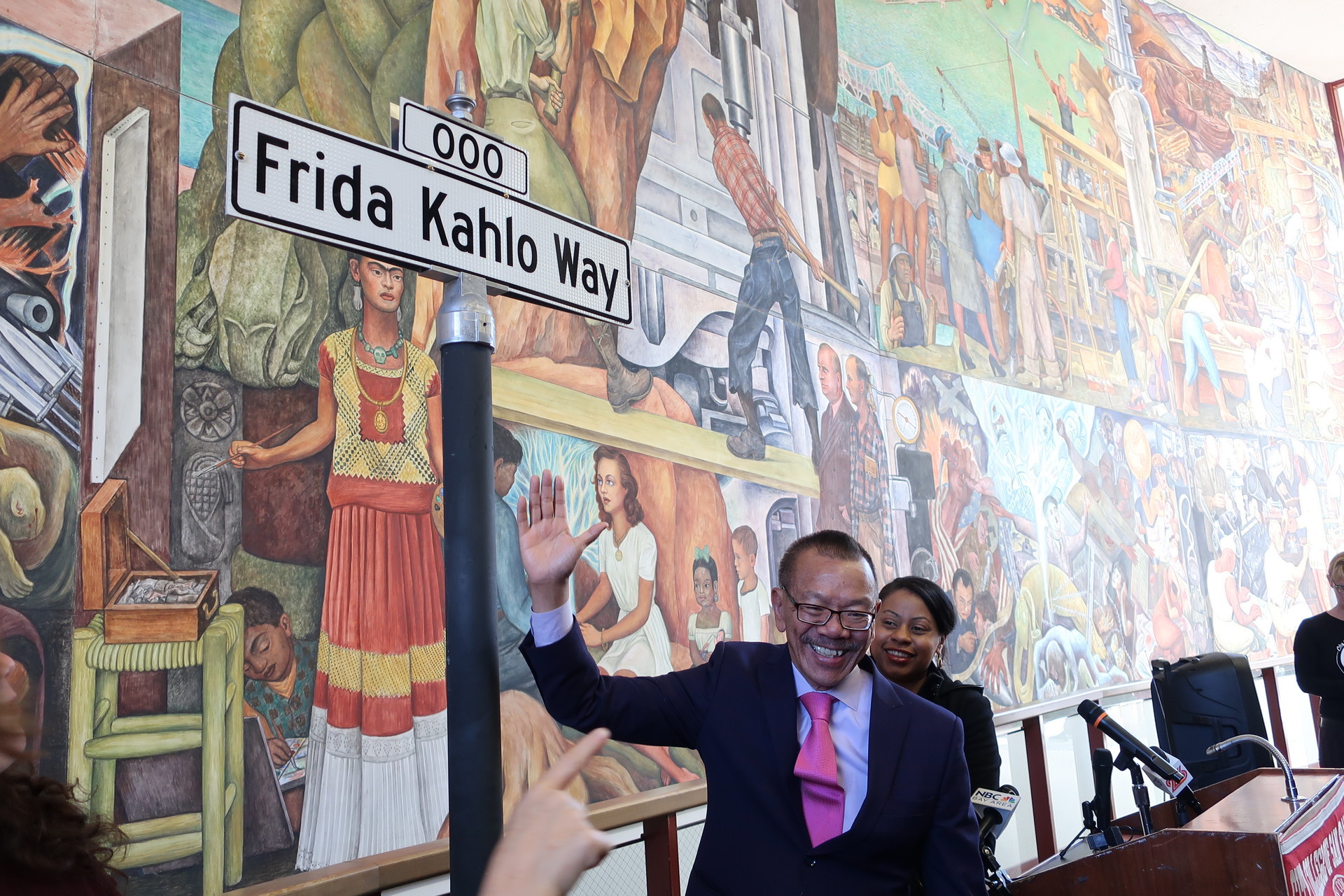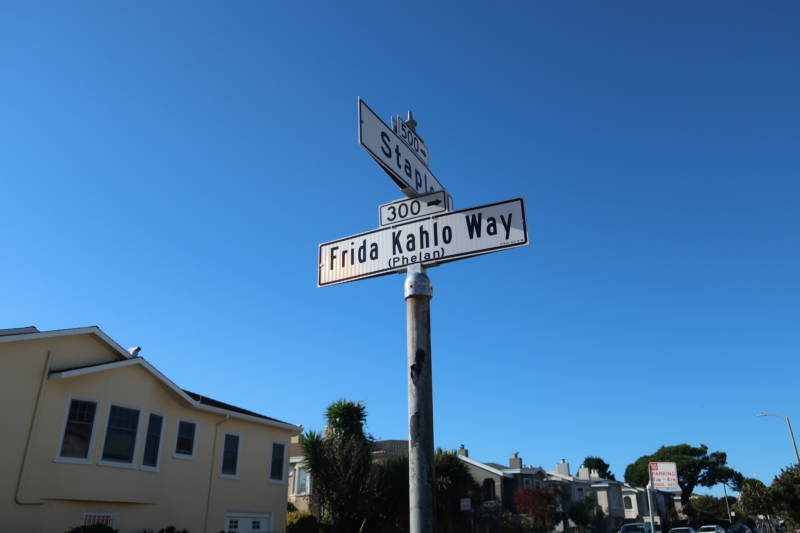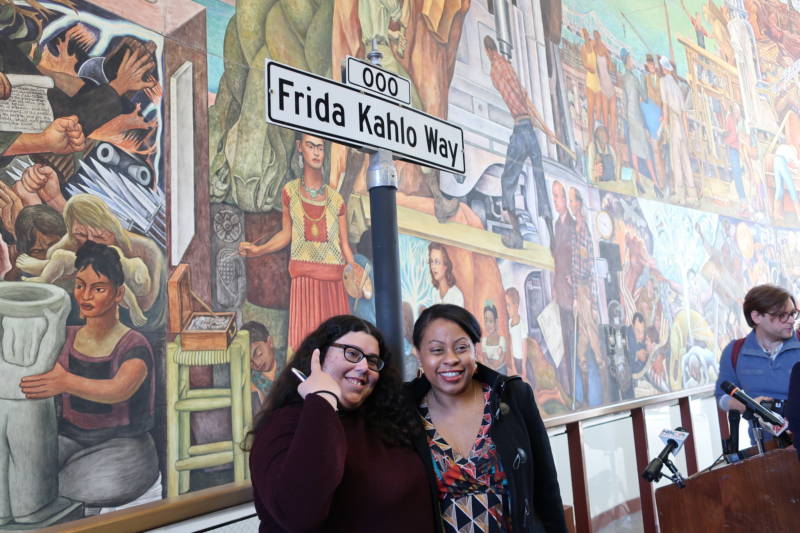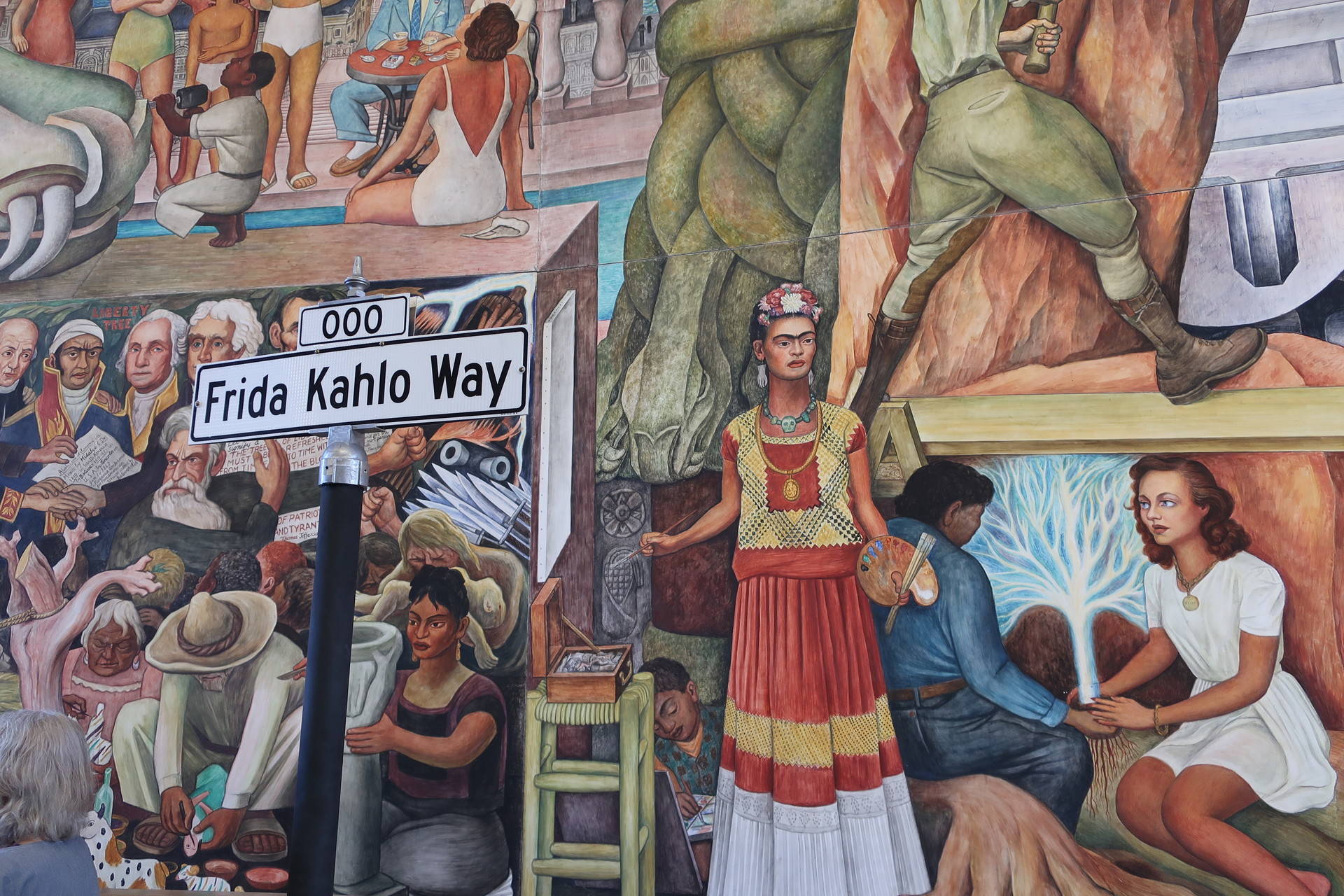At the Diego Rivera Theatre at City College of San Francisco, city officials gathered with students and faculty to celebrate the unveiling of Frida Kahlo Way on Friday.
The street — formerly Phelan Avenue — was named after James Phelan, an Irish immigrant who amassed his fortune in the city during the Gold Rush. But it’s the politics of Phelan’s son — former United States senator and San Francisco Mayor James D. Phelan — that inspired the name change.
During his time in office as mayor from 1897 to 1902, James D. Phelan supported the Chinese Exclusion Act of 1882. After leaving the Senate in 1921, he remained active in anti-immigrant movements and supported the Immigration Act of 1924. He also ran a campaign to “Keep California White.”

District 7 Supervisor Norman Yee said that even though the street is not directly named after the former mayor, the family association is enough to warrant the change.
“My family came over in the 1800s,” said Yee. “So they actually had to feel this type of racism that people had to go through around that time, and it did impact my family. So for me to be able to rectify what was the wrong thing to do means a lot to me personally.”
The San Francisco Board of Supervisors unanimously voted to approve the name change in June.
It’s one of the latest steps taken by the city to rename streets and other public spaces with historically racist origins. In September, officials removed the “Early Days” statue from the Civic Center due to its disparaging depiction of Native Americans.
Chancellor of City College of San Francisco Mark Rocha said the renaming of the street “… is not so much about the past, but about the future. About the community empowering itself to cast a beacon to the future about who we are of the San Francisco of today, which is a great city of immigrants.”

The street now bears the name of renowned Mexican artist Frida Kahlo, who lived in San Francisco in the early 1930s with her husband, muralist Diego Rivera.
“She’s a powerful, queer woman of color at a time in Mexico where there weren’t really big female names in the art scene,” said Associated Student Council Vice President Angelica Campos, of Kahlo. “It’s a really powerful statement at this time … where women are under attack in many ways.”

The San Francisco Foundation, which had a visual arts award named after James D. Phelan, made the decision to remove his name from the award in July.
In a statement, a spokesperson for the foundation said the decision is in line with the organization’s mission.
“As a community foundation focused on racial equity and economic inclusion in the Bay Area, we work with many partners, including our generous donor community. We adhere to donor intent; and in making the decision regarding the aforementioned award names, we have kept our commitment on how the funds are to be used. We have yet to make a final decision on the new names of the awards.”

